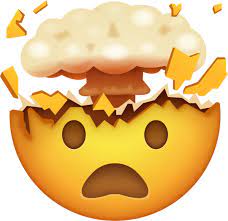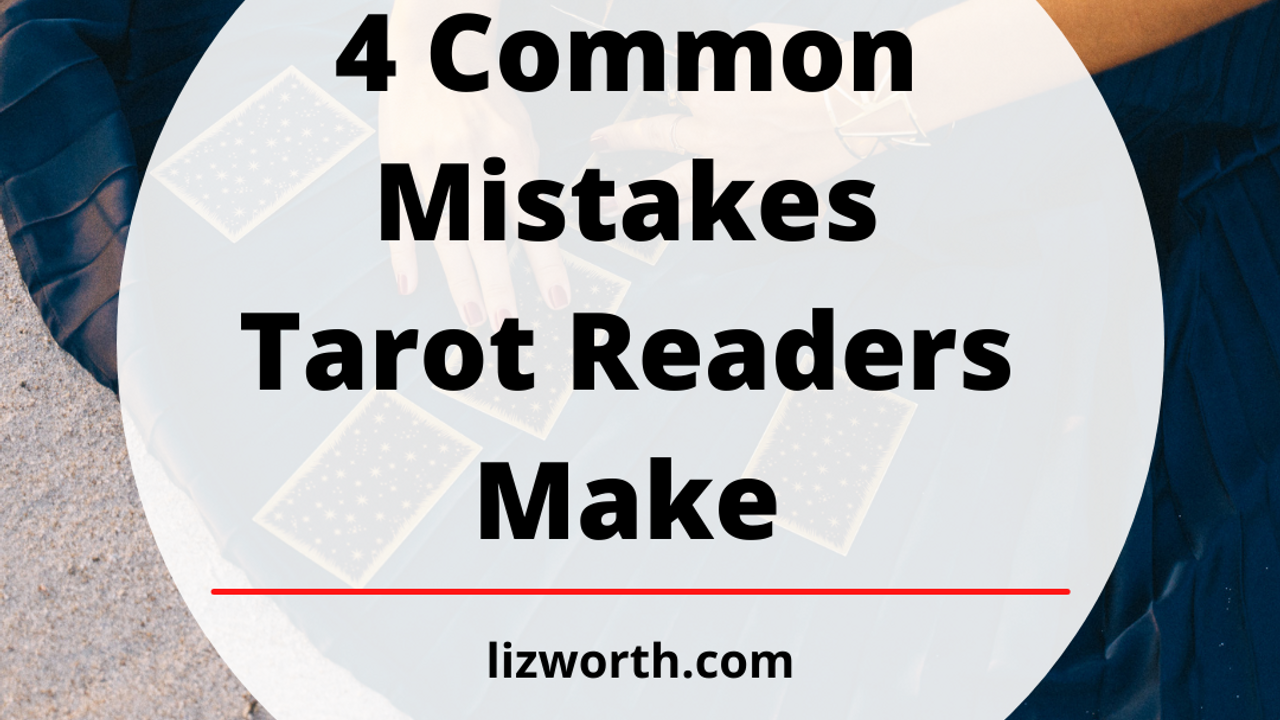A few things no one taught me about reading tarot

Recently, I’ve been trying to think about how my tarot practice evolved into what it is today in terms of the habits and beliefs I’ve built around my processes.
There are so many things that we learn about practices like tarot on our own, through trial and error, experience and reflection.
It’s not possible to learn everything from a teacher, mentor, class, or book. Our knowledge builds from so many different sources, influences, and experiences.
Here are a few things no one ever taught me about tarot, but that I learned to do along the way all the same:
1. It’s okay to take a moment to study the cards you’ve pulled before delivering any messages.
When I’m reading tarot for someone, I don’t launch into the reading the moment the cards are pulled. I always take my time to see what’s shown up, look for patterns or other interesting details, and consider the elements that are present.
Sometimes this long pause makes querents nervous, however: For a nervous sitter, that silence might b...
3 Tarot Reading Tips You Won’t Find in the Little White Book

From the outside, tarot might seem like it’s easy to learn: You get a deck of tarot cards, read along with the little white book, and away you go.
Or, you just feel your way through a reading, letting your intuition guide you.
Right?
Well, actually… there’s more to learning tarot than memorizing the card meanings you find in the little white book that comes with your tarot deck.
And while intuition can certainly influence a tarot reading, it’s not always so easy to figure out what our intuition is telling us, or how (or if) intuition even works. I’ve had many people come to my tarot workshops who admit they “don’t believe they are very intuitive” and are hoping tarot might help develop that part of themselves.
So don’t take it for granted that simply owning a tarot deck and flipping a few cards will somehow reveal an insight or answer that wasn’t available before.
If you want to read tarot…you have learn how to do that. It doesn’t usually just happen by magic.
But don’t be...
Do your tarot readings ever feel like guessing games?

A couple of weeks ago, I got an email that sounded like it should have landed in my spam folder instead of my inbox.
I didn’t recognize the name, and the subject line was vague: “Checking in” is all it said.
Still, I opened it anyway.
The email was short and read: “How are you doing? Are you busy? I need a little favour from you.”
I was about to hit delete, but I wanted to make sure this wasn’t a past client or student who perhaps had a question about something they’d purchased from me.
So I searched their name in my inbox, and an old message came up. The name suddenly rang a bell: It was a neighbour who lives in my building, and who I chat with whenever we run into each other.
But her surname had escaped me, having only seen it once before when she had emailed me in 2018 about donating some old books to a rummage sale.
I went back to her email. “Are you busy? I need a little favour from you.” The thing was, I was busy. I had a couple of hours to finish some homework for a class...
I took a survey of tarot readers. What I learned surprised me.

Earlier this year, I was doing some research within the tarot community.
I surveyed tarot readers at all skill levels to find out why they love tarot, and what they most often use it for.
You know what surprised me the most?
Seeing the huge disconnect between what tarot readers use tarot for, versus what tarot clients want and expect in a reading.
What do I mean by that?
I’ve read tarot for over 3,000 people and counting. And you know what the majority of those people have had in common?
They wanted help making decisions.
But when I asked tarot readers what they use tarot for, less than 5% of respondents said they use tarot for decision-making.

So here’s a tip: Tarot clients don’t necessarily think like tarot readers.
I know that not everyone wants to read tarot for other people, and that’s totally fine.
But if you do want to read tarot for others, I strongly recommend developing tarot skills that will help you serve your querents and clients best.
All of what I teach as a...
What if your tarot reading is completely wrong?

Ever tried to predict something in a tarot reading and wondered when it will come to pass?
Or maybe you’ve read tarot for someone else and they really wanted to know the timing of something.
Has that happened to you before?
Does the thought of not knowing make you nervous?
Do you avoid predictive readings so that you don’t have to give a direct answer?
I used worry about these things, too.
And I was often confused about them, because so many people use tarot for predictive purposes, and yet it’s common to be discouraged from using tarot for predictions at all.
“Tarot can’t do this, and it can’t do that.”
But is that true?
I don’t believe it is.
In fact, the very first tarot reading I ever had was a predictive reading – and the messages I was given that day were still coming true 10 years later.
Wild, right?
Of course, this isn’t to say that a tarot reading is a promise or contract: It can be a glimpse at the potential of what’s to come, or what may unfold if you go down...
4 Common Mistakes Tarot Readers Make (That Actually Keep You Stuck)

Let me ask you something: What would it mean for you to become a better tarot reader?
What would you do with tarot?
How would you help yourself, or others?
I want you take a moment to think about your answers.
Now, ask yourself: What’s stopping you from getting to that point?
When people ask me how long it took for me to start reading tarot professionally (seven years), I always preface my answer with this:
There is no one timeline or linear path with tarot. It is an ongoing journey where you can always be learning.
Some people take less time than I did. Some take more. There is no right or wrong, and no perfect amount of time to measure your own progress against.
But there are things that held me back along the way that I do believe slowed me down. Not that I was in a rush to get anywhere with tarot, but if I could have gotten better a little bit faster, I would have taken that option in a heartbeat.
Some of the beliefs that I got stuck on were:
Mistake #1. Doing the same ty...
That time I blew it as a tarot reader

Years ago, before I was reading tarot professionally, I used to do a lot of tarot parties for friends to get practice.
I was at a café one night where a friend was having a trunk sale for a jewelry line she was selling. The room was full of my pal’s friends and family, and I didn’t know many people there.
A woman sat down for a reading with me. I laid down my cards. I saw something in them that was so specific: A story about a family inheritance.
Except that’s not what I told her.
Because what I thought did not match the meanings of the cards that were in front of me.
I wasn’t experienced enough yet to know how to trust myself as a tarot reader.
So I played it safe.
I gave a by-the-book reading – literally – rather than talking about what I’d initially seen.
And it wasn’t exactly wrong. But it wasn’t exactly right, either.
It was generic, safe, and middle-of-the-road enough for this woman to find something relatable in what I was saying.
But it wasn’t specific to what she was...
Are these two things holding you back as a tarot reader?

I remember how disappointed I was when I got my first tarot deck.
I went in with big expectations. I’d always thought of myself an intuitive, perceptive person. I felt spiritual.
And I wanted that connection to something greater – be it the universe, deity, or my higher self.
I was so excited, and a little bit nervous, when I shuffled my cards and started turning them over. I wondered: What would I learn? What would I see in my reading?
I went from excited to crushed pretty quickly. As soon as my cards were laid out, I felt…nothing. Well, that’s not entirely true: I didn’t get any visions or insights because I had no idea what to make of the cards in front of me.
But I did feel a mix of disappointment, confusion, and insecurity. That insecurity was directed towards myself: What if I’m not the spiritually connected, intuitive person I thought I was?
What if I’m just not cut out for tarot?
I know that sounds dramatic, and it is. I had gone into tarot with such high expectations, a...
Can you learn tarot through social media?

Can you learn how to read tarot by watching other readers on YouTube?
Or by picking up tips through Instagram posts?
Or by watching 30-second TikTok tutorials?
I pose the question because it’s something I’ve been sitting with a lot this year.
I’m part of the last generation that grew up without the internet. We had landlines, answering machines, cassette tapes, CD players. Barely anyone I knew had a home computer when I was in high school.
But it was becoming cool to get one, along with a Hotmail account. But people still mailed letters, applied for jobs in-person or over the phone, and – thank the gods – none of us had our adolescence documented from start to finish on social media.
When the internet was catching on, it was exciting. I loved the idea of being to talk to anyone, anywhere, at any time.
Growing up as a teen in the suburbs made it harder for me to find information about tarot. I had to make-do with the limited resources I could get at the mall bookstore, or the lib...
Can we talk about reversals in tarot?

To read reversals, or not read reversals: That is the question.
At least for a lot of tarot readers out there.
It’s come up in every tarot class I’ve taught, and I often see minor dust-ups online between tarot readers about whether reading reversals matters or not.
Some might find it hard to believe that tarot has controversies, but it does.
However, I’m not of the opinion that there is a right or wrong answer here.
First, for those who aren’t familiar with reading reversals, it’s a technique that allows for reading a tarot card upside down.
This technique is deck-dependent to some extent. It can depend on the artwork of your deck.
Or on the type of deck altogether. If you’re using Tarot de Marseille, playing cards, or even oracle cards, reversals may not factor in at all.
I used to read reversals. But then I stopped.
Why? Because my tarot reading style had changed, and I got to a point where I no longer needed them. As I got more influenced by other types of cartomancy, I st...
